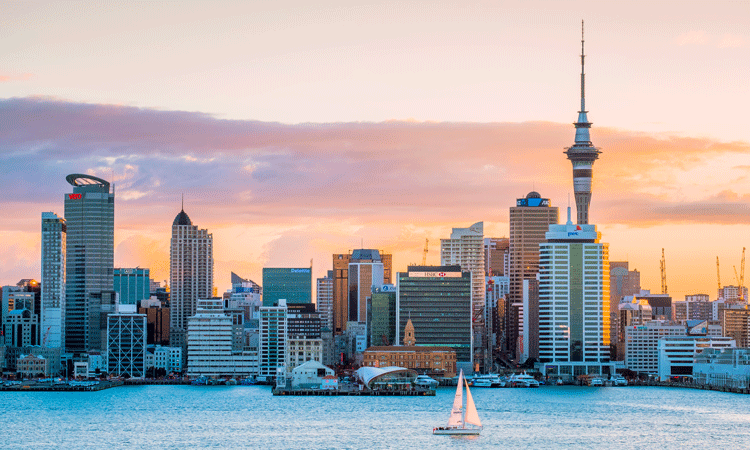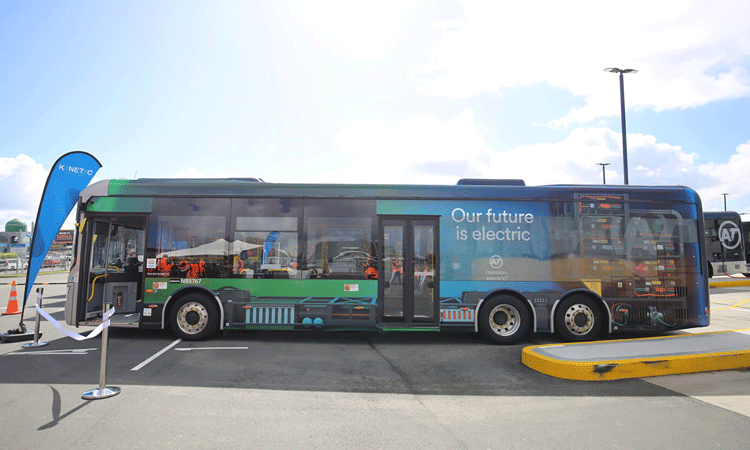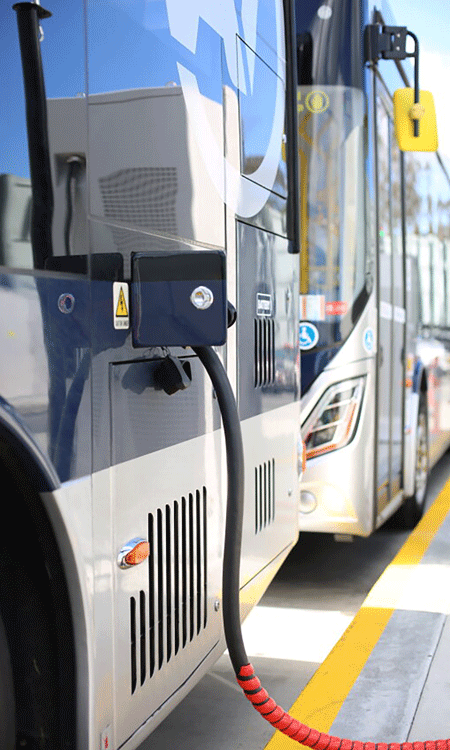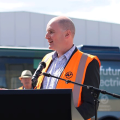Electrifying public transport in Auckland City (Tāmaki Makaurau)
- Like
- Digg
- Del
- Tumblr
- VKontakte
- Buffer
- Love This
- Odnoklassniki
- Meneame
- Blogger
- Amazon
- Yahoo Mail
- Gmail
- AOL
- Newsvine
- HackerNews
- Evernote
- MySpace
- Mail.ru
- Viadeo
- Line
- Comments
- Yummly
- SMS
- Viber
- Telegram
- Subscribe
- Skype
- Facebook Messenger
- Kakao
- LiveJournal
- Yammer
- Edgar
- Fintel
- Mix
- Instapaper
- Copy Link
Posted: 8 March 2024 | Edward Wright - Auckland Transport | No comments yet
Edward Wright, Manager of Metro Fleet & Infrastructure at Auckland Transport, shares his insight into New Zealand’s largest city’s journey towards sustainable public transportation and the ambitious initiatives that are propelling Auckland into a greener and more environmentally friendly future.


Auckland Transport (AT) is a council-controlled organisation of Auckland Council, responsible for all of the region’s transport services (excluding state highways), from roads and footpaths, to cycling, parking and public transport.
Our train network has been fully electric since 2022, and we have turned our attention to our bus and ferry services”
For several years now, we have been working towards dramatically reducing our emissions across all major modes of public transport – including bus, train and ferry. Our train network has been fully electric since 2022, and we have turned our attention to our bus and ferry services.
Bus services are an integral part of our public transport network here in Auckland. Our commitment to the decarbonisation of our bus network can be summarised in a single phrase – less grr, more shh – as we replace our noisy diesel buses with quiet electric ones.
Our journey so far
Auckland Transport adopted our first Low Emission Bus Roadmap in 2018, and we have subsequently updated it twice. Our most recent version, published in 2023, outlines our commitment to transitioning to zero-emission buses by 2035. We are not alone in this decision – our roadmap aligns closely with a government decision which targets full decarbonisation of urban buses throughout New Zealand by 2035.


Credit: Auckland Transport
Our decarbonising mission is one of our key focus areas. Progress has been steady, and we have a lot to be proud of.
Our decarbonising mission is one of our key focus areas. Progress has been steady, and we have a lot to be proud of”
As of September 2023, we have 133 electric buses on our network, the most in New Zealand and second only to Sydney in the Australasian region. Since July 2021, all new buses procured have been zero-emission and several of our routes are fully electric. As well as electric buses, we continue to trial the only hydrogen fuel cell bus in New Zealand.
Our AirportLink service, which connects commuters throughout the city to Auckland Airport, has been electric since January 2021. In addition, our CityLink service, which operates in and around Auckland’s Central Business District (CBD), has been electric since April 2021.
Furthermore, our TāmakiLink service, which connects the CBD to Auckland’s eastern suburbs, has been electric since November 2022. Other routes in the Eastern Bays’ region have been electrified in tandem.
Our most recent success came in September 2023, when a bus depot in the West Auckland suburb of New Lynn was partly electrified, with the remainder to be electrified in 2024. This makes Route 24 – a popular service which runs between New Lynn and the CBD – the latest to go electric.
Since adopting the first version of our roadmap, Auckland Transport has conducted multiple trials with the zero-emission buses. The results of these trials have been positive, indicating improvements in service reliability and operational savings. Arguably of more importance, we have had great feedback from our customers, who enjoy travelling on the quieter and smoother buses.
Decarbonising Auckland’s ferry fleet


Credit: Auckland Transport
Auckland’s ferries are going through a similar – albeit slightly slower – process. We recently purchased four vessels from Fullers360, who operate many of our ferry services throughout Auckland. We are in the process of refitting these vessels to ensure that they can operate reliably for the rest of their service lives.
This refit includes new lower emission diesel engines, engine beds, propeller shaft stern tubes, shaft bearings, new control systems, new control systems, new paint job and branding, as well as new seats both inside and out.
Introducing low emission diesel engines on our existing vessels provides continuity of service while our new electric and electric-hybrid vessels are being built. In recent years, Auckland Transport has partnered with several companies to build these vessels.
Our first two fully electric boats are due to arrive in 2024, designed by EV Maritime and built by Auckland boat builders McMullen and Wing. Moreover, two more hybrid-electric vessels are expected in 2025-2026, and these are being built by Q-West Boat Builders.
Our progress in this space cannot be overstated; by 2030, Auckland is set to have the largest electric ferry fleet in the Southern Hemisphere.


Related topics
Air Quality, Public Transport, Sustainable Urban Transport
Issue
Issue 4 2023
Related modes
Bus & Coach, Ferry, Train
Related cities
Auckland
Related countries
New Zealand
Related organisations
Auckland Transport
Related people
Edward Wright








